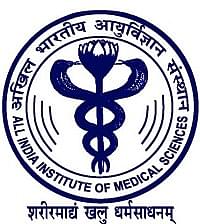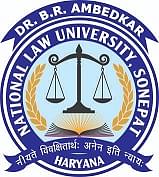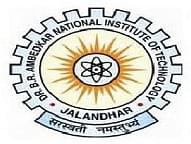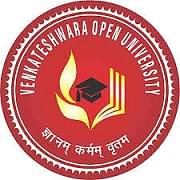Introduction about Ph. D in Financial Management
A Ph.D. in Financial Management from best college is an advanced academic degree program designed for
individuals seeking to deepen their understanding of financial theories,
methodologies, and practices at the highest level. It combines rigorous
research with practical application in the field of finance, preparing
graduates for careers in academia, research institutions, government agencies,
or the private sector.
Throughout the
program, students typically engage in intensive coursework covering topics such
as financial markets, investment analysis, corporate finance, financial
econometrics, and risk management. They also delve into advanced quantitative
techniques and theoretical frameworks to analyze complex financial phenomena.
A significant
component of a Ph.D. in Financial Management is the completion of original
research leading to a doctoral dissertation. This research is expected to
contribute new knowledge or insights to the field of finance, often addressing
contemporary issues, gaps in existing literature, or advancing theoretical
models. Doctoral candidates work closely with faculty advisors and mentors to
develop and execute their research projects, honing their analytical and
critical thinking skills along the way.
Graduates of Ph.D.
programs in Financial Management are equipped to pursue careers in academia as
professors or researchers, where they can contribute to the advancement of
financial knowledge through teaching and publishing scholarly work.
Alternatively, they may choose careers in research institutions, government
agencies, or the private sector, where their expertise in financial analysis
and research methods is highly valued.
Overall, a Ph.D. in
Financial Management offers a rigorous and intellectually stimulating academic
journey for individuals passionate about finance and committed to making
meaningful contributions to the field through research and scholarship.
What is admission process of Ph. D in Financial
Management?
The admission process for Ph.D. in Financial Management 2024 typically involves several steps
and requirements:
Prerequisites: Applicants are generally required to have
completed a master's degree in finance, economics, business administration, or
a related field. Some programs may also accept applicants with a bachelor's
degree, particularly if they have exceptional academic credentials or relevant
professional experience.
Academic Transcripts: Applicants must submit official
transcripts from all previous academic institutions attended, demonstrating
strong academic performance, particularly in quantitative courses such as
mathematics, statistics, economics, and finance.
Standardized Test Scores: Many Ph.D. programs require applicants to
submit scores from standardized tests such as the GRE (Graduate Record
Examination) or GMAT (Graduate Management Admission Test). These scores help
admissions committees evaluate applicants' quantitative and analytical
abilities. Some programs may also require the TOEFL or IELTS for non-native
English speakers to demonstrate proficiency in English.
Letters of Recommendation: Applicants typically need to provide
letters of recommendation from academic or professional references who can
attest to their qualifications, academic abilities, research potential, and
motivation for pursuing a Ph.D. in Financial Management.
Statement of Purpose: Applicants are usually required to submit
a statement of purpose or personal statement outlining their academic
background, research interests, career goals, and reasons for pursuing a Ph.D.
in Financial Management. This is an opportunity for applicants to articulate
their passion for the field and how their academic and professional experiences
have prepared them for doctoral studies.
Research Proposal: Some programs may require applicants to
submit a research proposal outlining their proposed dissertation topic,
research questions, methodology, and expected contributions to the field. This
demonstrates applicants' ability to formulate research ideas and engage in
scholarly inquiry.
Interviews: Shortlisted candidates may be invited for
interviews as part of the admissions process. These interviews allow admissions
committees to assess applicants' fit for the program, research interests, and
potential for success in doctoral studies.
Additional Requirements: Depending on the program, additional
requirements such as writing samples, resumes or CVs, or specific prerequisite
coursework may be necessary.
It's important for
prospective applicants to carefully review the admission requirements and
deadlines for each Ph.D. program they're interested in and to prepare their
application materials thoroughly to increase their chances of admission.
Additionally, reaching out to faculty members or current students in the
program for guidance and advice can be beneficial during the application
process.
What is eligibility for Ph. D in Financial
Management?
The eligibility
criteria for a Ph.D. in Financial Management can vary depending on the specific
program and institution. However, some common eligibility requirements include:
Educational Background: Applicants typically need to hold a
master's degree in finance, economics, business administration, or a related
field from an accredited institution. Some programs may accept applicants with
a bachelor's degree, particularly if they demonstrate exceptional academic
performance and relevant professional experience.
Minimum GPA: Many Ph.D. programs require applicants to
have a minimum grade point average (GPA) in their previous academic coursework,
usually ranging from 3.0 to 3.5 on a 4.0 scale. However, higher GPAs may be
expected for more competitive programs.
Standardized Test Scores: Some programs require applicants to submit
scores from standardized tests such as the GRE (Graduate Record Examination) or
GMAT (Graduate Management Admission Test). These scores help admissions
committees assess applicants' quantitative and analytical abilities. However,
some programs may waive this requirement, particularly for applicants with
strong academic or professional backgrounds.
Language Proficiency: For international applicants whose native
language is not English, proficiency in English is typically required. This may
be demonstrated through standardized tests such as the TOEFL (Test of English
as a Foreign Language) or IELTS (International English Language Testing
System).
Relevant Background: While not always mandatory, having
relevant academic background or professional experience in finance, economics,
accounting, or related fields can strengthen an applicant's candidacy. This may
include coursework in quantitative methods, financial analysis, econometrics,
or research methods.
Letters of Recommendation: Applicants are usually required to submit
letters of recommendation from academic or professional references who can
speak to their qualifications, academic abilities, research potential, and
motivation for pursuing a Ph.D. in Financial Management.
Statement of Purpose: Applicants typically need to submit a
statement of purpose or personal statement outlining their academic background,
research interests, career goals, and reasons for pursuing a Ph.D. in Financial
Management. This allows applicants to articulate their passion for the field
and how their background and experiences have prepared them for doctoral
studies.
Research Proposal (optional): Some programs may require or encourage
applicants to submit a research proposal outlining their proposed dissertation
topic, research questions, methodology, and expected contributions to the
field. This demonstrates applicants' ability to formulate research ideas and
engage in scholarly inquiry.
It's important for
prospective applicants to carefully review the eligibility criteria and
application requirements of each Ph.D. program they're interested in to ensure
they meet the necessary qualifications before applying.
What is syllabus for Ph. D in Financial Management?
The syllabus for Ph.D. in Financial Management can vary depending on the specific program and
institution offering the degree. However, here's a general overview of the
topics that may be covered in the coursework component of a Ph.D. program in
Financial Management:
Advanced Financial Theory: In-depth study of foundational theories
and concepts in finance, including theories of capital structure, dividend
policy, asset pricing, market efficiency, and financial intermediation.
Quantitative Methods in Finance: Advanced statistical and econometric
techniques used in financial research, including time series analysis, panel
data analysis, multivariate regression, and quantitative risk modelling.
Financial Markets and Institutions: Examination of the structure, functioning,
and regulation of financial markets and institutions, including stock markets,
bond markets, derivatives markets, banking systems, and regulatory frameworks.
Investment Analysis and Portfolio
Management: Advanced topics in
investment analysis, portfolio theory, asset allocation, risk management, and
performance evaluation, with a focus on empirical research and quantitative
methods.
Corporate Finance: Advanced study of corporate finance
principles and practices, including capital budgeting, corporate governance,
mergers and acquisitions, corporate restructuring, and financial
decision-making under uncertainty.
Financial Econometrics: Application of econometric techniques to
analyze financial data and test hypotheses in finance, including time series
analysis, volatility modeling, event studies, and causal inference methods.
Behavioural Finance: Exploration of psychological biases,
heuristics, and decision-making processes that influence financial markets and
investment behavior, with a focus on understanding deviations from traditional
finance theories.
Empirical Research Methods: Training in research design, data
collection, statistical analysis, and interpretation of empirical results in
finance, including experimental methods, survey research, archival data
analysis, and field studies.
Special Topics in Financial Management: Elective courses or seminars covering
emerging trends, contemporary issues, or specialized areas within financial
management, such as fintech, sustainable finance, real estate finance, or
international finance.
Dissertation Research: Independent research leading to the
completion of a doctoral dissertation under the supervision of a faculty
advisor, involving the development of a research question, literature review,
data collection and analysis, and presentation of findings.
It's important to
note that the syllabus for a Ph.D. program in Financial Management may evolve
over time to reflect advancements in the field and the specific expertise of
faculty members. Additionally, students may have the opportunity to tailor
their coursework and research interests to align with their career goals and
academic interests.












